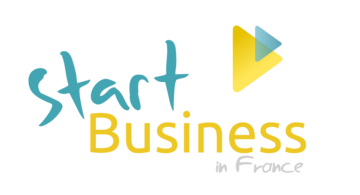Your dream is to move to France for a fresh start and to run a small business which will enable you to enjoy your new lifestyle. Who wouldn't dream of moving to a new country and finding the right balance between work and personal life.
There is just one step between this dream and the reality - it is getting a business visa for non-European citizen or a carte se sejour entrepreneur/profession libérale for English citizen. How do you ensure that you get this business visa or carte de sejour? What can you do to ensure that the French Embassy gives you the golden ticket - a business visa. In this article, I’m sharing my best tips to succeed with your business visa application for France.
Before I go any futher, here are the business visa that you may consider as a non-European citizen: visa commercant (buy-to-resell, ecommerce, shops, tourism), visa profession liberale (consultants, programmers, teachers, coaches), visa Talents (highly skilled, Master's degree + 30KE investment in your business). The first two are my favourites, as they are easier to get, i.e no need to justify a financial investment in your business, provided you have an income to live on.
1 - Keep it simple
This first tip may sound counter intuitive, but it’s the most important one. Keep your project simple. The role of the French Embassy advisors is to look at your business plan and check that you are ticking all the boxes enabling you to carry out your activity. This means rules, regulations, legal structure, link to any existing business. Anything that doesn’t tick the rules, raises a red flag and your visa request is likely to be rejected.
Your dream might be to create a tea-shop or restaurant, but this involves finding premises, signing a leasing contract (pretty tough from abroad), checking the kitchen's health and safety standards, buying some expensive professional equipment. A short term alternative could be to set up as a chef à domicile or traiteur, then once you are up and running in France, look into your long term project.
You might want to create a marketing agency as a French incorporated business, but this means finding a bank to work with (tough from abroad), having draft letters of incorporation. An easier option could be to start freelancing as a micro entrepreneur, then the following year, move up to a French incorporated business.
Keep it simple for the French Embassy to say "Oui" to you.
2 - Have a long term plan
Following on from my first tip, try to project yourself in one year, then 3 to 5 years time. Have a short term plan for your visa application, enabling you to be self-suffisant and earning enough income for your 1st year visa renewal (or have enough savings). Then plan your development once your visa has been renewed. What do you want to achieve or develop? Will it impact the type of visa you may need? For instance switching from a visa profession liberale as a marketing consultant to a visa commercant to create your French incorporated business?
3 - Write a strong business plan
Your business plan has two purposes: 1/ Enabling you to create a vision and strategy for your activity and 2/ Enabling the French Embassy to decide that your business project looks viable. The clearer you are on your offer, ideal customer, competitors, market analysis, strategy and sales projection, the easier it is for them to say yes. Show your experience, expertise and a good understanding of your market.
A good business plan will also include a financial plan, with your projected sales and running expenses over 3 years. Aim to show that your business will generate enough income for you to live from or that you have enough savings. Aim for an income of at least 19,000 euros for a single person, or show some savings or other sources of income (private pension, rental income, divorce alimony).
4 - Check the regulations & taxes with a French business expert
This is probably where most visas get rejected. You applied for a business visa to open a beauty shop, but you have no official qualification. You want to open an equestrian center, but need approval from local authorities before you can do so. If you need help for this step, book a Power Hour with me. I will double check the regulation and best set up for your project.
5 - Show your existing support and forward planning
If you’ve shared your business project with your network or former employers and they are keen to use your services, ask them for their support. Ask for a “lettre d’intention” for each of them. This is basically a letter in which they confirm that they support your initiative and may use your services.
This letter isn’t a contract, meaning that your contact can decide not to work with you in the future. But it shows your ability to gather some momentum and potential customers even before you move to France.
This is a very strong tool for freelancers providing services business to business.
Finally, I would also recommend to make a list of the actions that you have already taken to build your project. You've been to France to check the area, your market, meet some contacts. You've met an accountant, a bank manager or a business advisor. You've taken some French lessons or worked with a business coach, mention it. It shows that you are planning ahead and gives condfidence in your abiility to take action and make things happen. A simple table with the date, contact's company and topic covered will do the job.

